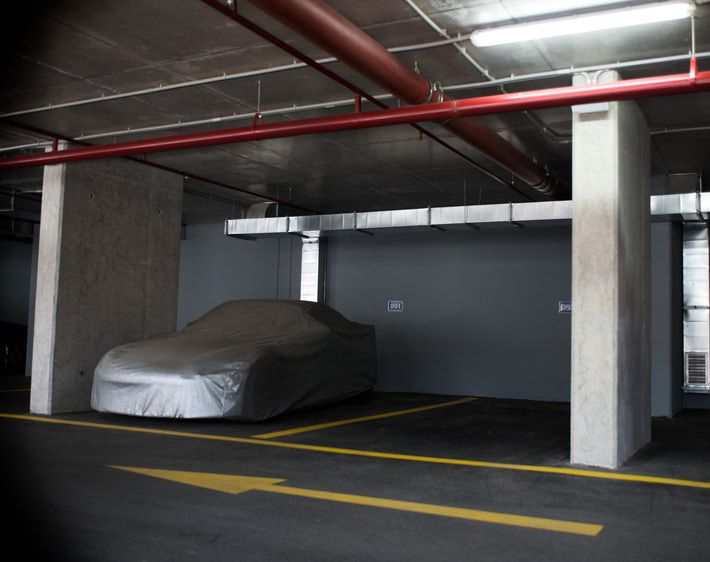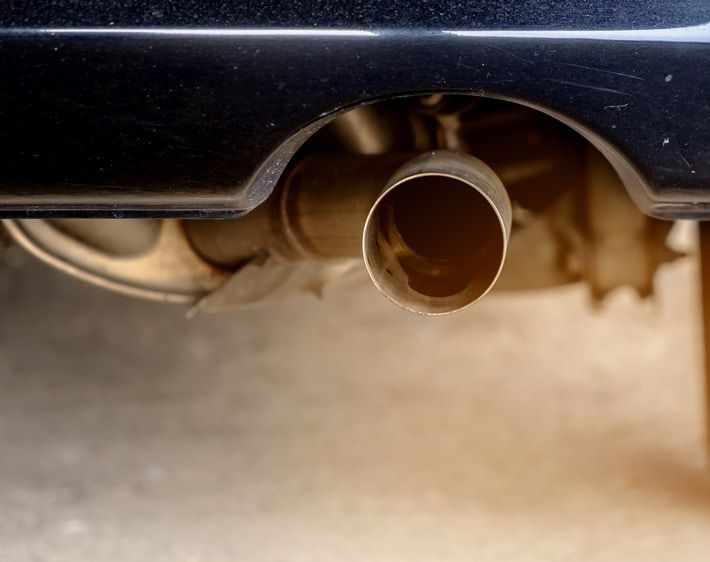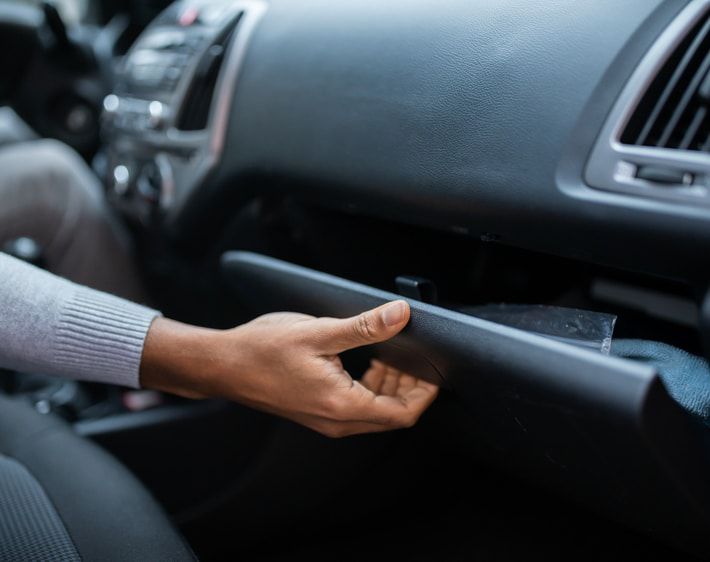Perhaps you've started walking to work or maybe you've transitioned from carpool duty to homeschooling. Either way, life can put you in situations where a car isn’t as necessary as it once was.
If you’re keeping your car and not using it, it's important to understand how a vehicle's various parts can wear down even when it isn’t being driven. You don't want to let it sit! Here's what you should do when storing your car long-term.
What can happen when you store your car long-term
Leaving a car parked and unused for extended periods is more complicated than it seems. From a logistics standpoint, you’ve got to figure out where to park it, how much your storage solution will cost, and if the cost of storage works with your monthly budget! From a mechanical standpoint, you have to consider the effects that long-term storage can have on your car’s components.
1. It may allow moisture to accumulate in the gas tank.
When a car is left in storage for weeks or months, moisture in the air can work its way into the vehicle’s fuel tank. Humidity condenses in the gas tank like drops of “sweat” on an icy glass of lemonade — eventually dripping down and into your fuel. These water droplets contaminate the gas inside your car, which could lead to decreased power during acceleration, engine sputtering, and damage to the fuel injection system.
Readying your car’s gas tank for long-term storage: Don’t store your car with an empty gas tank! A full tank makes it harder for moisture to accumulate inside, which may help prevent the problems mentioned above.
2. It may cause partial or complete battery drainage.
Cars tend to use electricity even when they’re not running, leeching energy to support features like the anti-theft device, clock, and radio. When you’re driving regularly, your alternator recharges the battery on-the-go. But when your car is parked, this recharging process doesn't happen, which is why you might encounter a dead battery after leaving your car parked for even just a few days!
Prepping your car battery for long-term storage: If you won't be in the same area as your car, have someone you trust drive it once a week to allow the alternator to recharge the battery regularly. Alternatively, consider disconnecting the car battery’s negative cable (but make sure you refer to your owner’s manual for step-by-step instructions on how to do so).
Disconnecting the negative battery terminal may help prevent your battery from losing charge while the car’s not in use. However, it will also reset all your electronic settings, meaning you’ll lose your radio presets and Bluetooth configuration. That’s a small price to pay for a working battery when you're ready to put your car back in gear.
3. It may lead to tire flat-spotting.
When a vehicle is parked long-term, the weight of the car exerts pressure on the tire contact patch — the area where the tire touches the ground. Over time, this pressure can wear down the tread, causing the contact patch to become flat and rigid, which can compromise tire performance and durability. Tire flat-spotting is particularly common in cold climates, where low temperatures may cause air pressure to drop significantly.
Getting your tires ready for long-term storage: Before storing your car, inflate the tires to manufacturer-recommended levels to help delay or even prevent flat spotting. If you will be away for more than a month, make arrangements to have someone re-park your car every couple of weeks to ensure the tires aren't sitting on the same contact patches for the duration of your absence.
4. It may allow for engine oil contamination.
Much like the fuel tank, your engine oil chamber can be infiltrated by moisture, which can water down (and contaminate) your motor oil. When you drive regularly, engine oil reaches high temperatures that essentially “boil out” excess moisture — but long-term parking allows for moisture to build up in the oil reservoir. Water-contaminated oil will be less efficient at its job of lubricating your engine’s moving parts and regulating engine temperature.
Preparing your engine oil for long-term storage: Since used/old oil is more likely to already be contaminated, getting an oil change with a filter replacement before storing your car can help protect your engine. Plus, a fresh oil filter can help fend off contaminants better than an old one!
5. It can result in cosmetic damage.
Leaving a car parked outside can damage the paint. But did you also know that garage parking doesn’t completely “cover” your paint job, either? Even inside a garage, dirt and debris can collect on your car’s surface. Over time, dust and dirt create an abrasive layer on your car, wear down the paint’s protective top coat, and make it more susceptible to scratches and sun damage.
Protecting your car’s exterior during long-term storage: To help protect your car’s cosmetic appeal, stash it in a temperature- and humidity-controlled environment. Give it a good wash before storing it, preferably adding a paint-protecting wax to prevent fading and discoloration. Lastly, layer on additional protection with a snug car cover — it’ll help keep scratch-causing dust and debris off the paint’s top coat.
6. It could turn your car into rodent-haven.
Storing your car in a dry environment with mild temperatures is great for the paint job, but it may also turn your vehicle into a cozy home for rodents. Aside from being an unpleasant surprise, mice can wreak havoc on your vehicle — chewing up cables and hoses, building nests in your engine compartments, and leaving smelly (and potentially dangerous) droppings everywhere they go!
Arming your car against rodents during long-term storage: Make sure your car and the space you’re storing it in are free of anything mice would eat or use to build a nest (practically everything), including bird feed, old candy wrappers, cardboard, papers, and forgotten fast food bags! Yuck! You can use steel wool or mesh to cover any hidey-holes that mice could use to get into your car, like the exhaust pipe and air intake. To be extra safe, you can also set a couple of mice traps in the vicinity of your car to help you stop pest invasions before they happen!
7. It could allow your brake components to stick.
Leaving your car parked for extended periods with the parking brake on may cause your parking brake to rust in place, especially if the car is exposed to elements like road salt and water. When this type of parking brake-jamming corrosion occurs, many drivers find themselves with no option but to call a tow truck!
Prepping your brakes for long-term car storage: Even though engaging your parking brake is almost always recommended when your car is parked, long-term storage is an exception to the rule. If you're worried that your car might roll while in storage, put special blocks (called wheel chocks) behind the wheels instead.
Get Your Car Storage-Ready!
Your car still needs TLC when sitting in long-term storage. Prepare it for a long nap with a battery check, affordable oil change, comprehensive inspection, and expert advice from the pros at your local Firestone Complete Auto Care, and when you want to start driving again, we’ll help you get it road-ready, too!



